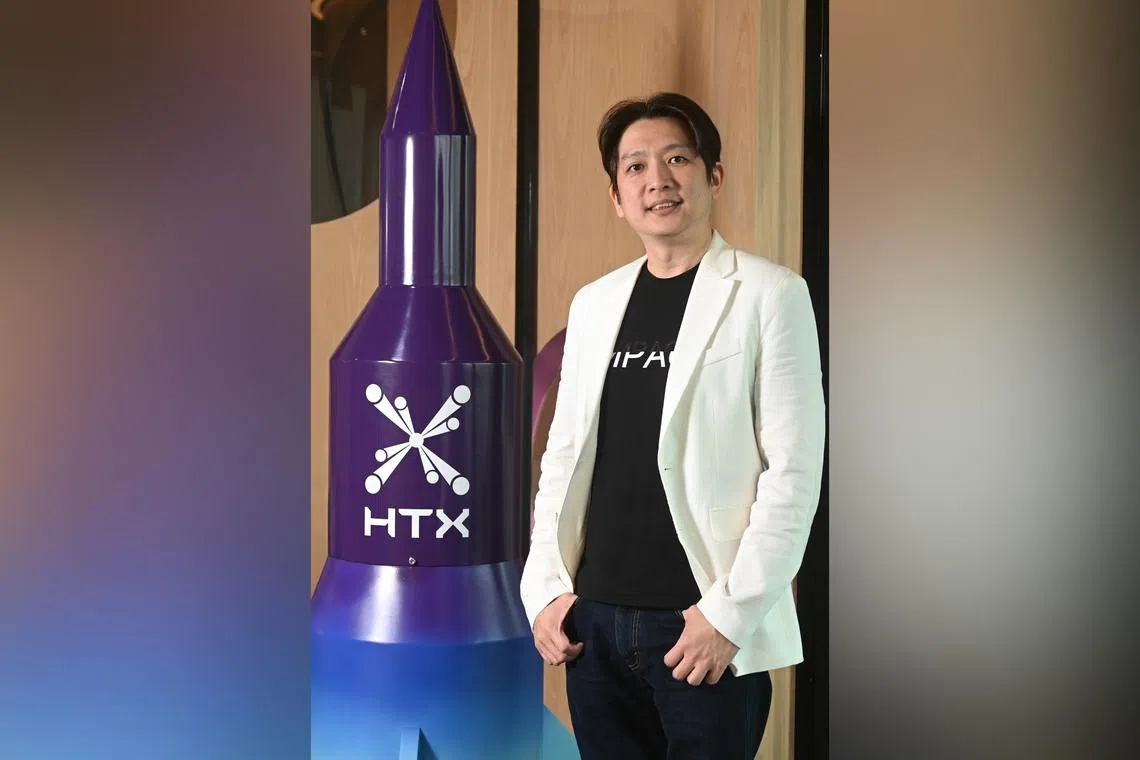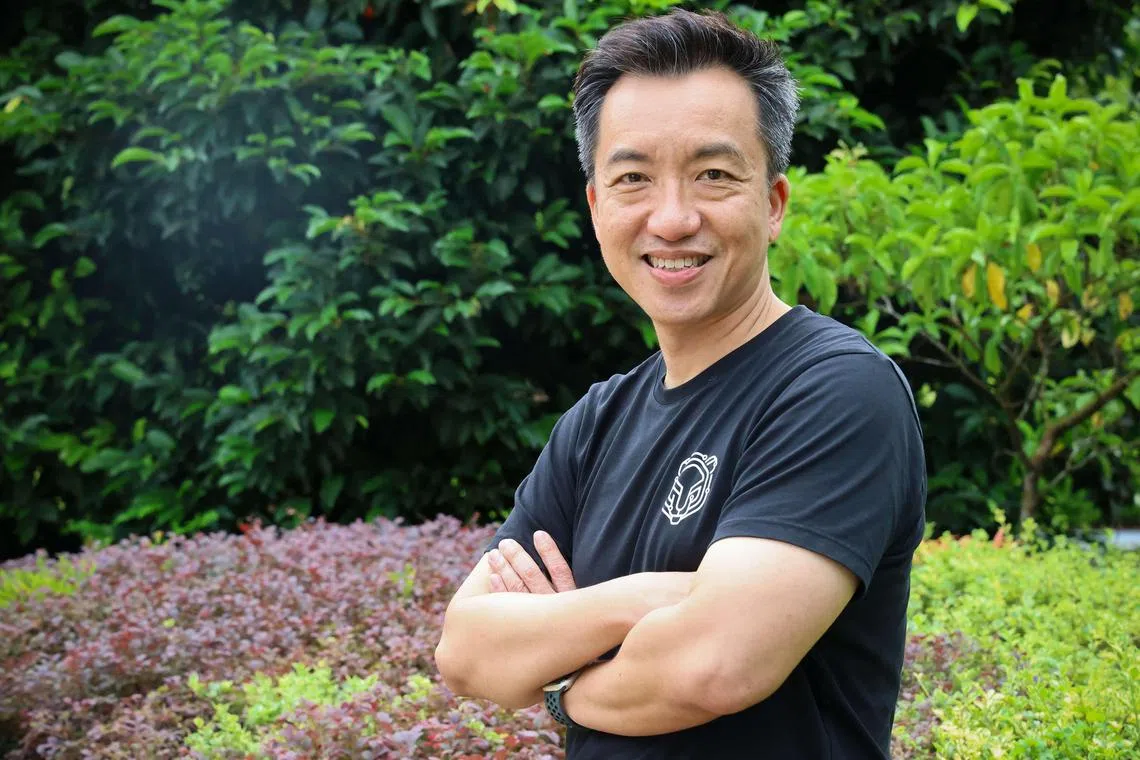Home Team tech agency ramps up hiring and keeps flexi-work amid global techlash
Sign up now: Get ST's newsletters delivered to your inbox

Mr Joseph Tan, acting director of HTX’s xDigital office, noted the limited pool, but said it is looking beyond just the typical definition of an AI practitioner.
ST PHOTO: DESMOND WEE
SINGAPORE – Multiple rounds of layoffs, cuts in benefits and strict return-to-office directives have shaken up the technology industry in 2024.
The great “techlash”
But the Home Team Science and Technology Agency (HTX) – which celebrates its fifth-year anniversary on Dec 1 – is bucking the trend, and has been aggressively hiring and sticking to flexi-work.
The statutory board was formed with a headcount of 1,000 in 2019 recruit another 500 people
It now has some 2,000 people and is looking to hire and groom a 500-person artificial intelligence (AI) workforce
The agency is responsible for providing innovative solutions for the Home Team departments. It has been involved in projects including the Immigration and Checkpoints Authority’s new clearance concept that taps biometrics, an automated drug-testing toilet for the Singapore Prison Service, and development of cyborg cockroaches for rescue missions.
Since announcing its AI push in June, it has built an AI workforce of more than 60 people, with plans to add another 100 in the next few months. It aims to have 300 people by end-2025.
The AI talent pool in Singapore was reported to be about 5,000-strong in 2023, with plans by the Government to triple the number
Mr Joseph Tan, acting director of HTX’s xDigital office, which is driving the AI push, noted the limited pool, but said it is looking beyond just the typical definition of an AI practitioner.
“I’m looking for someone who is definitely curious about generative AI and has put that into action. I don’t care how it’s done, whether they’ve taken part in a hackathon or gone for some courses or written a very simple application. These are usually the CVs that’ll catch my attention as potential candidates,” he said.
HTX said there have been more than 4,500 applications for its AI-related roles since July.
It has set aside a budget of $400 million, with a significant chunk of it going to AI research and development in the next three years. This will include projects like the use of AI to optimise deployment of ambulances
HTX’s chief innovation officer Ng Pan Yong said justifying such an investment is sometimes difficult. “It’s not like the private sector, where we can say I put in $10, I’m going to make $15, let’s do it,” he said.
“Our challenge is, we do this, we’re going to cut down response time, lives may be saved. You can’t put dollars and cents to some of these things.”

HTX’s chief innovation officer Ng Pan Yong said justifying such an investment is sometimes difficult.
PHOTO: HOME TEAM SCIENCE AND TECHNOLOGY AGENCY
HTX will also continue with its culture of flexi-work to attract and retain talent.
Its chief executive Chan Tsan said: “HTX comprises diverse job roles and responsibilities... we give (staff) flexibility as long as there’s no conflict with their particular job scopes, and provided it doesn’t get in the way of doing their jobs well.”
Recruitment and career experts said that while there is still strong demand for AI talent across the tech sector, HTX offers a stable alternative to the volatile job situation in the tech landscape.
Assistant Professor Ng Weiyi from NUS Business School said that while talent will still gravitate to established tech companies, HTX is differentiating itself by providing benefits that align with their needs.
“On the one hand, HTX will have to structure a human resource strategy that manages potential bloat as older technologies become redundant and newer tech talent are required,” he noted.
“On the other, technical talent who are tired of job instability and constant mobility demands now have an alternative.”
SGTech chairman Nicholas Lee said what HTX stands for will appeal to some.
“HTX’s focus on meaningful, impactful projects and partnerships with industry leaders can appeal to tech professionals.
“However, competitive compensation and a dynamic work culture will be critical.”
Mr Faiz Modak, associate director for tech and transformation at recruitment firm Robert Walters Singapore, sees HTX’s approach impacting the tech sector positively.
“It definitely is a positive signal and reinforces confidence in the tech landscape when an agency like HTX announces hiring plans with such volume,” he said.
“We only see a benefit of such an approach as it creates new jobs and builds healthy competition in the industry for tech talent, thus encouraging more investment in this space.”



